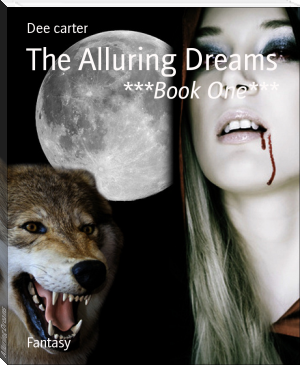The Roots of the Mountains<br />Wherein Is Told Somewhat of the Lives of the Men of Burgdale, Their by William Morris (best sales books of all time .txt) 📗

- Author: William Morris
Book online «The Roots of the Mountains<br />Wherein Is Told Somewhat of the Lives of the Men of Burgdale, Their by William Morris (best sales books of all time .txt) 📗». Author William Morris
Transcribed from the 1896 Longmans, Green, and Co. edition by David Price, email ccx074@pglaf.org
THE ROOTS OF THE MOUNTAINSWHEREIN IS TOLD SOMEWHAT OF
THE LIVES OF THE MEN OF BURG-
DALE THEIR FRIENDS THEIR
NEIGHBOURS THEIR FOEMEN AND
THEIR FELLOWS IN ARMS
BY WILLIAM MORRIS
Whiles carried o’er the iron road,
We hurry by some fair abode;
The garden bright amidst the hay,
The yellow wain upon the way,
The dining men, the wind that sweeps
Light locks from off the sun-sweet heaps—
The gable grey, the hoary roof,
Here now—and now so far aloof.
How sorely then we long to stay
And midst its sweetness wear the day,
And ’neath its changing shadows sit,
And feel ourselves a part of it.
Such rest, such stay, I strove to win
With these same leaves that lie herein.
LONGMANS, GREEN, AND CO.
LONDON, NEW YORK, AND BOMBAY
MDCCCXCVI
First Edition printed November, 1889.
250 copies were printed on Large Paper.
Second Edition, February, 1893.
CONTENTS.
Page
Chapter I.
Of Burgstead and its Folk and its Neighbours
1
II.
Of Face-of-god and his Kindred
12
III.
They talk of divers matters in the Hall
18
IV.
Face-of-god fareth to the Wood again
25
V.
Face-of-god falls in with Menfolk on the Mountain
34
VI.
Of Face-of-god and those Mountain-dwellers
39
VII.
Face-of-god talketh with the Friend on the Mountain
50
VIII.
Face-of-god cometh home again to Burgstead
57
IX.
Those Brethren fare to the Yew-wood with the Bride
59
X.
New Tidings in the Dale
63
XI.
Men make Oath at Burgstead on the Holy Boar
69
XII.
Stone-face telleth concerning the Wood-wights
74
XIII.
They fare to the hunting of the elk
78
XIV.
Concerning Face-of-god and the Mountain
82
XV.
Murder amongst the Folk of the Woodlanders
87
XVI.
The Bride speaketh with Face-of-god
93
XVII.
The Token cometh from the Mountain
97
XVIII.
Face-of-god talketh with the Friend in Shadowy Vale
105
XIX.
The fair Woman telleth Face-of-god of her Kindred
109
XX.
Those two together hold the Ring of the Earth-god
124
XXI.
Face-of-god looketh on the Dusky Men
141
XXII.
Face-of-god cometh home to Burgstead
151
XXIII.
Talk in the Hall of the House of the Face
162
XXIV.
Face-of-god giveth that Token to the Bride
165
XXV.
Of the Gate-thing at Burgstead
170
XXVI.
The Ending of the Gate-thing
183
XXVII.
Face-of-god leadeth a Band through the Wood
191
XXVIII.
The Men of Burgdale meet the Runaways
202
XXIX.
They bring the Runaways to Burgstead
216
XXX.
Hall-face goeth toward Rose-dale
225
XXXI.
Of the Weapon-show of the Men of Burgdale and their Neighbours
231
XXXII.
The Men of Shadowy Vale come to the Spring Market at Burgstead
239
XXXIII.
The Alderman gives Gifts to them of Shadowy Vale
251
XXXIV.
The Chieftains take counsel in the Hall of the Face
255
XXXV.
Face-of-god talketh with the Sun-beam
268
XXXVI.
Folk-might speaketh with the Bride
275
XXXVII.
Of the Folk-mote of the Dalesmen, the Shepherd-Folk, and the Woodland Carles: the Banner of the Wolf displayed
282
XXXVIII.
Of the Great Folk-mote: Atonements given, and Men made sackless
287
XXXIX.
Of the Great Folk-mote: Men take rede of the War-faring, the Fellowship, and the War-leader. Folk-might telleth whence his People came. The Folk-mote sundered
292
XL.
Of the Hosting in Shadowy Vale
301
XLI.
The Host departeth from Shadowy Vale: the first Day’s journey
311
XLII.
The Host cometh to the edges of Silver-dale
318
XLIII.
Face-of-god looketh on Silver-dale: the Bowmen’s battle
322
XLIV.
Of the Onslaught of the Men of the Steer, the Bridge, and the Bull
335
XLV.
Of Face-of-god’s Onslaught
343
XLVI.
Men meet in the Market of Silver-stead
352
XLVII.
The Kindreds win the Mote-house
363
XLVIII.
Men sing in the Mote-house
367
XLIX.
Dallach fareth to Rose-dale: Crow telleth of his Errand: the Kindreds eat their meat in Silver-dale
372
L.
Folk-might seeth the Bride and speaketh with her
378
LI.
The Dead borne to bale: the Mote-house re-hallowed
382
LII.
Of the new Beginning of good Days in Silver-dale
384
LIII.
Of the Word which Hall-ward of the Steer had for Folk-might
386
LIV.
Tidings of Dallach: a Folk-mote in Silver-dale
391
LV.
Departure from Silver-dale
394
LVI.
Talk upon the Wild-wood Way
403
LVII.
How the Host came home again
404
LVIII.
How the Maiden Ward was held in Burgdale
409
LIX.
The Behest of Face-of-god to the Bride accomplished: a Mote-stead appointed for the three Folks, to wit, the Men of Burgdale, the Shepherds, and the Children of the Wolf
418
p. 1CHAPTER I. OF BURGSTEAD AND ITS FOLK AND ITS NEIGHBOURS.Once upon a time amidst the mountains and hills and falling streams of a fair land there was a town or thorp in a certain valley. This was well-nigh encompassed by a wall of sheer cliffs; toward the East and the great mountains they drew together till they went near to meet, and left but a narrow path on either side of a stony stream that came rattling down into the Dale: toward the river at that end the hills lowered somewhat, though they still ended in sheer rocks; but up from it, and more especially on the north side, they swelled into great shoulders of land, then dipped a little, and rose again into the sides of huge fells clad with pine-woods, and cleft here and there by deep ghylls: thence again they rose higher and steeper, and ever higher till they drew dark and naked out of the woods to meet the snow-fields and ice-rivers of the high mountains. But that was far away from the pass by the little river into the valley; and the said river was no drain from the snow-fields white and thick with the grinding of the ice, but clear and bright were its waters that came from wells amidst the bare rocky heaths.
The upper end of the valley, where it first began to open out from the pass, was rugged and broken by rocks and ridges of water-borne stones, but presently it smoothed itself into mere grassy swellings and knolls, and at last into a fair and fertile plain swelling up into a green wave, as it were, against the rock-wall which encompassed it on all sides save where the river came gushing out of the strait pass at the east end, and where at the west end it poured itself out of the Dale toward the lowlands and the plain of the great river.
Now the valley was some ten miles of our measure from that place of the rocks and the stone-ridges, to where the faces of the hills drew somewhat anigh to the river again at the west, and p. 2then fell aback along the edge of the great plain; like as when ye fare a-sailing past two nesses of a river-mouth, and the main-sea lieth open before you.
Besides the river afore-mentioned, which men called the Weltering Water, there were other waters in the Dale. Near the eastern pass, entangled in the rocky ground was a deep tarn full of cold springs and about two acres in measure, and therefrom ran a stream which fell into the Weltering Water amidst the grassy knolls. Black seemed the waters of that tarn which on one side washed the rocks-wall of the Dale; ugly and aweful it seemed to men, and none knew what lay beneath its waters save black mis-shapen trouts that few cared to bring to net or angle: and it was called the Death-Tarn.
Other waters yet there were: here and there from the hills on both sides, but especially from the south side, came trickles of water that ran in pretty brooks down to the river; and some of these sprang bubbling up amidst the foot-mounds of the sheer-rocks; some had cleft a rugged and strait way through them, and came tumbling down into the Dale at diverse heights from their faces. But on the north side about halfway down the Dale, one stream somewhat bigger than the others, and dealing with softer ground, had cleft for itself a wider way; and the folk had laboured this way wider yet, till they had made them a road running north along the west side of the stream. Sooth to say, except for the strait pass along the river at the eastern end, and the wider pass at the western, they had no other way (save one of which a word anon) out of the Dale but such as mountain goats and bold cragsmen might take; and even of these but few.
This midway stream was called the Wildlake, and the way along it Wildlake’s Way, because it came to them out of the wood, which on that north side stretched away from nigh to the lip of the valley-wall up to the pine woods and the high fells on the east and north, and down to the plain country on the west and south.
p. 3Now when the Weltering Water came out of the rocky tangle near the pass, it was turned aside by the ground till it swung right up to the feet of the Southern crags; then it turned and slowly bent round again northward, and at last fairly doubled back on itself before it turned again to run westward; so that when, after its second double, it had come to flowing softly westward under the northern crags, it had cast two thirds of a girdle round about a space of land a little below the grassy knolls and tofts aforesaid; and there in that fair space between the folds of the Weltering Water stood the Thorp whereof the tale hath told.
The men thereof had widened and deepened the Weltering Water about them, and had bridged it over to the plain meads; and athwart the throat of the space left clear by the water they had built them a strong wall though not very high, with a gate amidst and a tower on either side thereof. Moreover, on the face of the cliff which was but a stone’s throw from the gate they had made them stairs and ladders to go up by; and on a knoll nigh the brow had built a watch-tower of stone strong and great, lest war should come into the land from over the hills. That tower was ancient, and therefrom the Thorp had its name and the whole valley also; and it was called Burgstead in Burgdale.
So long as the Weltering Water ran straight along by the northern cliffs after it had left Burgstead, betwixt the water and the cliffs was a wide flat way fashioned by man’s hand. Thus was the water again a good defence to the Thorp, for it ran slow and deep there, and there was no other ground betwixt it and the cliffs save that road, which was easy to bar across so that no foemen might pass without battle, and this road was called the Portway. For a long mile the river ran under the northern cliffs, and then turned into the midst of the Dale, and went its way westward a broad stream winding in gentle laps and folds here and there down to the out-gate of the Dale. But the Portway held on still underneath the rock-wall, till the sheer-rocks grew somewhat broken, and were cumbered with certain screes, and at last p. 4the wayfarer came upon the break in them, and the ghyll through which ran the Wildlake with Wildlake’s Way beside it, but the Portway still went on all down the Dale and away to the Plain-country.
That road in the ghyll, which was neither wide nor smooth, the wayfarer into the wood must follow, till it lifted itself out of the ghyll, and left the Wildlake coming rattling down by many steps from the east; and now the way went straight north through the woodland, ever mounting higher, (because the whole set of





Comments (0)